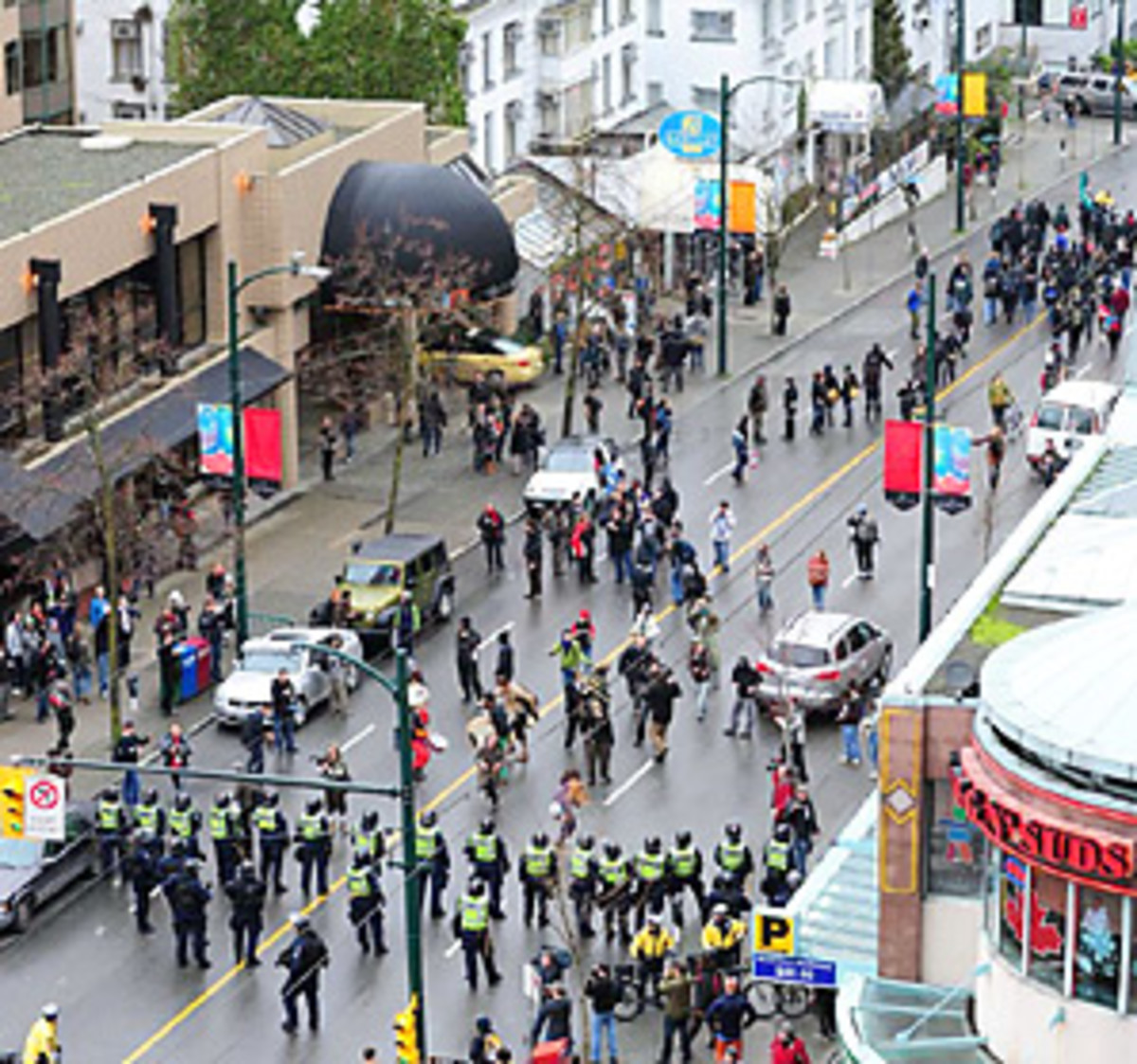With emotions still high, Saturday protest may not be the last
VANCOUVER, British Columbia -- At the intersection of Robson and Seymour, in the heart of downtown Vancouver, the Olympic spirit was alive and well. Megaphones in hand, volunteers clad in red and white were leading chants of "Go, Canada, Go" and inviting passersby to jump-rope in the drizzle.
Six blocks west, the anti-Olympic spirit was in full force, as a handful of self-styled anarchists dressed in black, wearing bandanas over their faces, were being arrested for protesting the Games.
On Saturday morning, just as the first medal events were taking place, hundreds of demonstrators marched through the streets of Vancouver in an attempt to "disturb 'business as usual,'" according to the Web site of the self-proclaimed Olympic Resistance Network, a coalition that brings together dissenters with a litany of complaints. Dubbed the 2010 Heart Attack, the demonstration's aim was to "clog the arteries of capitalism," but what may have started as a peaceful protest turned violent when dissenters smashed the windows of Hudson's Bay Company store, the Games' main retailer, defiled cars and buses along the route and threw debris at police. Police and security, who are omnipresent in Vancouver, shut down several blocks of downtown and even the Lion's Gate Bridge, the city's main link to the Whistler mountain site, for a time.
The rally came to a close in the early afternoon, about two miles from its start, as protestors dispersed after the arrests. But a handful remained, rebuking the security personnel lining the streets. "Shame on the police!" they chanted. "Shame on Canada!"
The protesters' causes ranged from environmental concerns to Indigenous peoples' rights and government corruption, all with an anti-capitalist sheen. But some of the marchers said their action should not have escalated to physical confrontation. "I'm against the Olympics, but there's no need for violence," said Vancouver resident Angus McLeod. "There's so much corruption in British Columbia. [The media] haven't even scratched the surface."
McLeod contends that the province is being robbed of its natural resources, and that the costs of the Games could have been covered by a tax on mineral exports. There have been widespread complaints in British Columbia that ordinary taxpayers will ultimately be saddled with the costs of the Games, and that money spent on staging the Olympics would have been better spent on healthcare, education and other pressing needs.
Whatever the cause, mainstream Vancouverites seemed unmoved by the protests. "I understand that they're against the corporation, but they're just ruining the shift of the workers at that store," said one witness.
Dissent had been simmering all week in the run-up to the Games. On Friday, as the Olympic torch made its way through the city, hundreds of protesters flooded the streets at strategic points, forcing organizers to alter the route of the torch to BC Place, site of the Opening Ceremonies.
Saturday's demonstration was likely not the last. The Resistance Network lists several other demonstrations on its calendar for the coming days. The Games have begun, but the clouds over Vancouver -- both literal and figurative -- remain.






